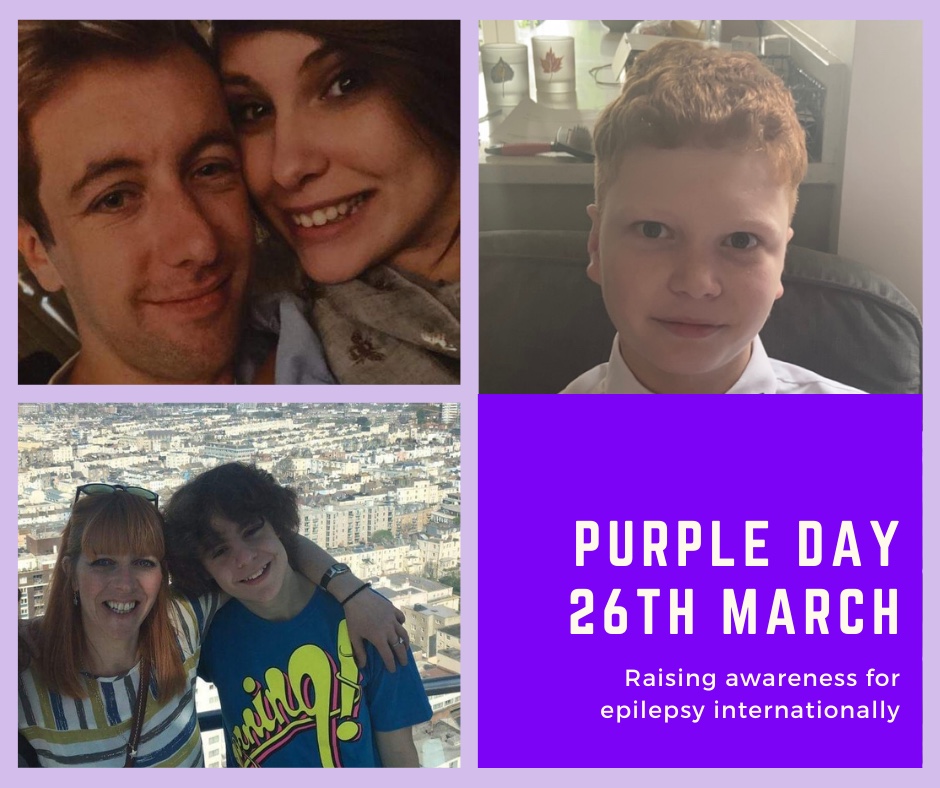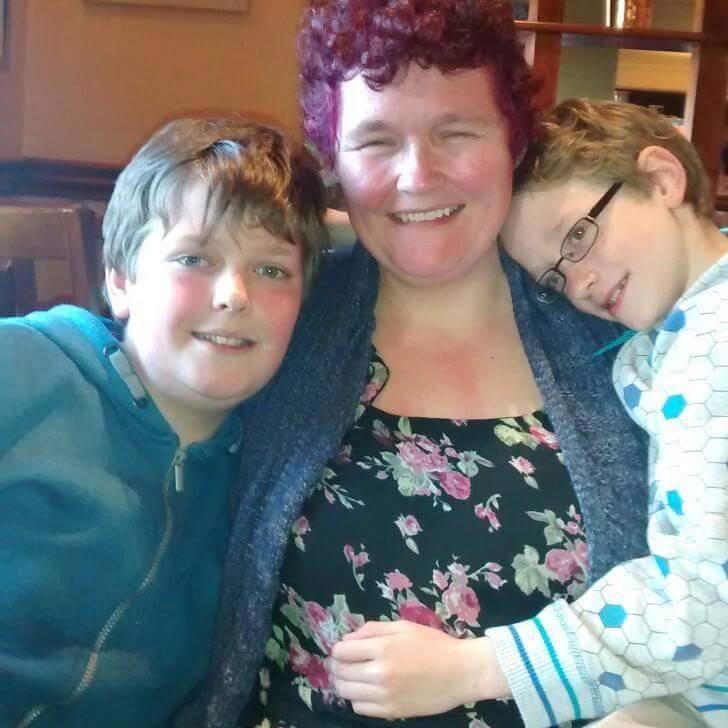Epilepsy is a serious neurological condition affecting 600,000 people living in the UK and impacting their lives everyday.
Purple Day on Friday 26 March is internationally dedicated to raising awareness for epilepsy in the hope of creating a better understanding of people with the condition.
Media Officer at Epilepsy Action, Hattie Hodgson-Crome said: “Epilepsy can affect anyone at any time, and about one in 100 people have the condition. Days like Purple Day give people with epilepsy a chance to speak up, to educate others and to challenge some common misconceptions people have of the condition they live with every day.”

Jack Hill, 16, from Leicester, is one of the estimated 112,000 children and young people under the age of 18 living with epilepsy (Joint Epilepsy Council). He developed epilepsy when he was 13 months old. This resulted in him developing learning difficulties that cannot be diagnosed, the cause of his epilepsy is also unknown.
The CHESS Study showed that 95% of children with epilepsy experience difficulty in at least one area of learning or behaviour (Reilly, 2014).
Jack, who has lived with epilepsy for as long as he can remember, said: “I don’t know anyone with epilepsy which can feel lonely but epilepsy affects my life every day. I always have to be prepared to have a seizure.”
In 2017, an Epilepsy Action survey found that six out of 10 people (60%) with epilepsy have experienced feelings of loneliness.
Since August 2020 Jack has been living with his grandparents, Brian and Carole Blower, who are still understanding what it’s like to care for a young person with epilepsy.
Mr Blower said: “We have never seen anything that offers support for us or for Jack. It is easier now because he is more self-aware, but it was frightening when we first found out he had epilepsy because we didn’t know what to expect.”
“It isn’t a very spoken about topic,” said Mrs Blower. She added: “Epilepsy is more common than you think and it can develop at any age which is frightening. People need to be made more aware which is why days like Purple Day are important.”
Having supportive friends and family is vital to help people with epilepsy feel safe and understood, something Dale Powis, 34, from Exmouth, Devon, said he feels lucky to have.

Before his seizures began, Dale had a Saturday morning radio show, he watched his local rugby club, was a mobile DJ entertaining at weddings and enjoyed playing football. This all changed on his 29th birthday.
On 9 January 2016, Dale was getting ready for his birthday meal in the evening when he had his first seizure.
“Apparently a huge cry was heard. My mom came rushing down the stairs to find me fitting and having a seizure on the sofa, a significantly scary moment for my mom as I knew nothing about this at the time.”
Dale was taken to hospital and like so many people, he did not understand what epilepsy was until he was diagnosed.
“I thought, that’s not right, I can’t have? I’m a DJ and I’m always with flashing lights. Yes, that’s how naive I was about epilepsy. I thought, surely it’s only that flashy light thing that sends people into a fit…..How wrong was I.”
Many people just assume, like Dale did, epilepsy is just to do with flashing lights, but it is so much more.
In fact, photosensitive epilepsy only affects around three in 100 people with the overarching condition. In this type of epilepsy, seizures are triggered by flashing or flickering lights, or some patterns (Epilepsy Action). This is not the case for Dale.

There is a long way to go to move away from the generic ‘flashing lights’ response, Dale added. He said people should be encouraged to be more vocal about their epilepsy by highlighting their personal experiences.
“Days like Purple Day can help us take a massive step forward to get the message out there about epilepsy. It gives us time to reflect about how we have become Epilepsy Warriors with our condition and how we are battling and coping with it.”
Dale also has close friends at work, specifically a colleague he called Soph. He said: “It’s great to have someone so supportive so close and someone who shows a genuine interest in epilepsy.”
The side effects of the medication can be debilitating and it is important people are made aware of this. Dale said his include severe fatigue, mood swings, depression and anxiety, as well as many more.
Dale is still trying to find a medication to suit him as his epilepsy remains uncontrolled. He added: “Many people don’t understand or know about the magnitude of epilepsy.”
Ms Hodgson-Crome said: “We know that people with epilepsy face so many challenges beyond seizures and it can have a significant impact on both them and their loved ones. Side-effects of medication, memory problems and impacted mental health are just some of the things that can affect people.”

Lucas Holt, 17, from Leicester, also had little knowledge of epilepsy before he was diagnosed at the age of 14.
As a mum, Bonita Keay said: “It was scary to start with. Before Lucas was officially diagnosed and before he started his medication, he didn’t want to be on his own anywhere in case something happened.”
Lucas added: “I was never aware I was going to have a seizure before I had one or if I did know, I don’t remember.”
Fortunately, most of Lucas’s seizures were at home and usually early in the morning. Lucas has been seizure-free for two years and his medication was due to be decreased in October 2020 but because of COVID-19 restrictions, his face-to-face appointments were cancelled and he remains on his usual dose.
Ms Keay said: “There does need to be more awareness of epilepsy so people know what to do when someone has a seizure, there is outdated information people remember from when they were younger, and it just isn’t right.”
Like Lucas, many people with epilepsy can take part in the same activities as everyone else, with the help of simple safety measures where appropriate. However, many people with epilepsy are still discriminated against due to ignorance about the condition, said Epilepsy Action.
Dale Lewis highlighted the importance of raising awareness for epilepsy. He said: “Don’t be ashamed of your condition, talk to people about it, educate people about it and make it a normal day-to-day thing that we as an Epilepsy Family deal with. If we keep getting the message out, the more comfortable we will feel about having the condition. I wish everyone to stay seizure free and have an amazing purple day!”
To find out more about Purple Day, visit: https://www.purpleday.org/
For epilepsy support visit: https://www.epilepsy.org.uk/




